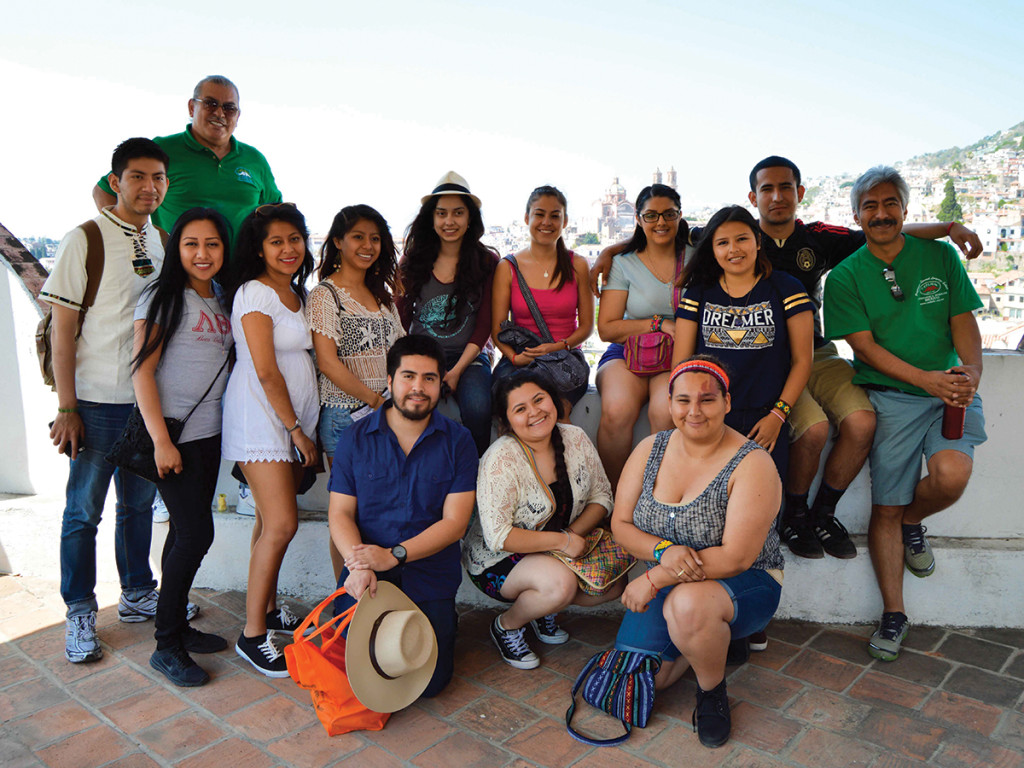
There is a little-known law called “advance parole” that allows people who are not documented American citizens to leave the country under certain conditions and return legally. A person filing for advance parole can make an excursion for educational purposes, such as studying abroad, or for humanitarian reasons, such as visiting ill family members in another country. In particular, this policy is applicable for those who are part of the Deferred Action for Childhood Arrivals (DACA) program.
The upshot of this law is that it opens opportunities for students in DACA who have entered the country illegally to study abroad. Multiple undocumented students at UCR and elsewhere have utilized advance parole at the suggestion of their professors, and in many cases used the chance to visit family members (from Mexico in particular). Indeed, some 85 percent of the approximately 6500 participants in DACA have been approved in their use of advance parole.
Another major aspect of advance parole is that it grants legal return to the U.S. to anyone using it. This affords those who’ve entered the country illegally the possibility of applying for citizenship by virtue of legal entry. Therefore, DACA students can benefit from advance parole because it grants access to normally inaccessible educational opportunities and enables them to begin the process of becoming legalized citizens.
There are a few potential downsides to the use of advance parole. For one, the functions of advance parole as described above technically only apply to people who are part of DACA; in general, there is a separate and very different set of conditions, which makes its use for DACA participants seem to be something of a loophole, and thus somewhat illegitimate. Despite this, it’s a legitimate and legal option for undocumented students. Also, given that it provides the chance of both travel and citizenship, it is possible, as with any law, for the advance parole system to be abused by some unscrupulous person. However, this possibility is balanced by the facts that applications for advance parole (which require an explanation of the purpose of the intended travel) are thoroughly screened and that unauthorized travel (i.e. vacationing without studying) can result in the abuser being denied their return to the U.S.
It is an unfortunate commentary on the status of immigration in this country that a thoroughly legal system such as advance parole is so obscure as to have just a few thousand users out of potentially millions of eligible immigrants. Undocumented students, who are trying to have the same chances at receiving an education as their documented counterparts, are forced to resort to what amounts to a loophole in order to have a shot at a mode of education that many students take for granted. Furthermore, they are, in general, completely unaware of the opportunity presented by advance parole, which means that they may as well be denied it outright. Though the federal government may not be hiding advance parole from undocumented people, it certainly is not going out of its way to make it known.
Major federal changes in immigration policy have been uselessly awaited for years now, and are unlikely to arrive anytime soon, but that does not mean change has to wait as well. It is possible for college campuses, including and especially those in the UC system — because of their presence in California, a state with significant rates of illegal immigration — to provide real assistance to undocumented students. All that is needed is for universities to make a point of actively promoting advance parole to eligible students.
For example, the study abroad programs at UCR, such as the Educational Abroad Programs and Opportunities Abroad Program and elsewhere, can hold seminars that describe the function of advance parole and explain eligibility for the program. (This should be emphasized, as the rules discussed apply only to those who are covered by DACA.) They can also start email campaigns or use social media to pass knowledge of these seminars beyond simply using word of mouth. Awareness of advance parole (or, rather, the lack thereof) is perhaps the most important factor in explaining the very low frequency of its use to the advantage of undocumented students. Therefore, actions that raise awareness will prove decisive in increasing the use of advance parole to benefit such students.
It is also important for universities to provide other resources for assisting undocumented students. As this group is at a particularly large disadvantage in terms of education, colleges need to invest in programs that empower them and encourage them to reach for the same opportunities that other students have. If this group of students does not see itself going to graduate school or studying abroad, then it will not seek out information related to these sorts of programs, rendering more specific actions — such as encouraging use of advance parole — effectively useless; the fundamental issue of attitudes held by undocumented students (and views held about them) must be resolved before precise problems like the legal mechanism permitting them to study abroad are addressed.
The deck is already stacked against undocumented students in so many ways. By promoting the use of advance parole for these students, UCR can help them build a better hand.








